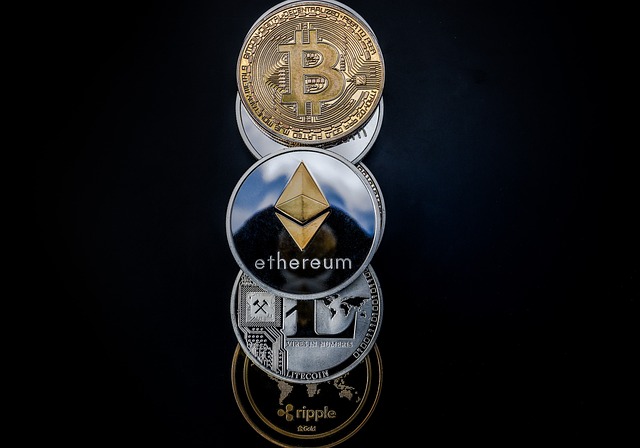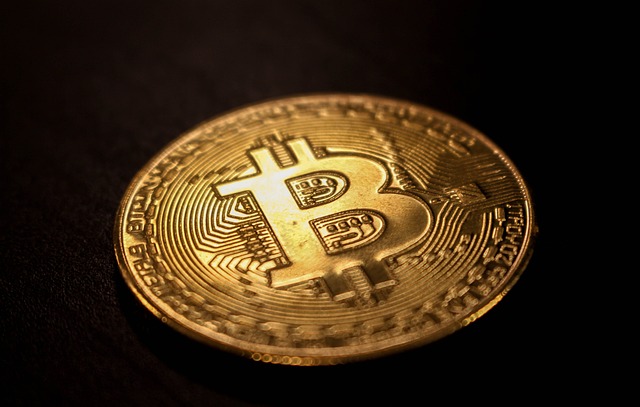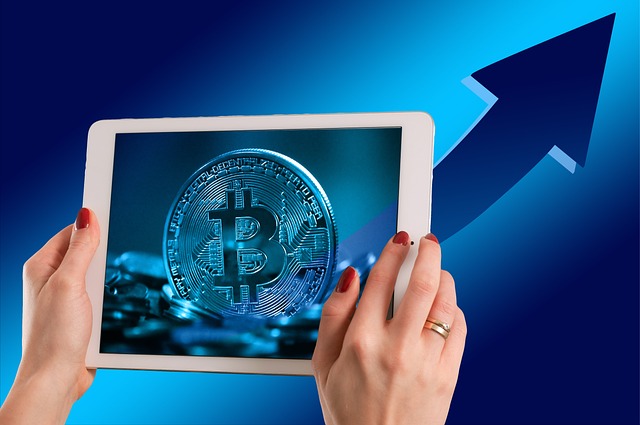Exploring the Exciting World of Cryptocurrencies: 50 Must-Know Cryptocurrencies

Cryptocurrencies have taken the financial world by storm, offering a decentralized and digital alternative to traditional currencies. With thousands of cryptocurrencies in existence, it can be overwhelming to navigate the landscape and identify the most popular ones. Whether you’re a seasoned investor or a curious newcomer, understanding the key players in the cryptocurrency market is essential. Here, we’ll delve into 40 of the most popular cryptocurrencies that you should know about.
1) Bitcoin (BTC): the most famous cryptocurrency
Bitcoin needs no introduction, being the pioneer of the cryptocurrency revolution. Created by an anonymous person or group of people using the pseudonym Satoshi Nakamoto, Bitcoin is often referred to as digital gold and remains the most valuable and widely recognized cryptocurrency.
2) Ethereum (ETH): one of the most used cryptocurrency
Ethereum is more than just a digital currency; it’s a decentralized platform that enables smart contracts and decentralized applications (DApps) to be built and operated without any downtime, fraud, control, or interference from a third party.
3) Binance Coin (BNB): the largest cryptocurrency exchange
Binance Coin is the native cryptocurrency of the Binance exchange, one of the largest cryptocurrency exchanges in the world. It is used to pay for trading fees on the platform and can also be used for various other purposes within the Binance ecosystem.
4) Ripple (XRP):
Ripple is a digital payment protocol and cryptocurrency that aims to enable fast and low-cost cross-border transactions. It has gained traction among banks and financial institutions for its potential to revolutionize the way money is transferred globally.
5) Cardano (ADA):
Cardano is a blockchain platform that aims to provide a more secure and scalable infrastructure for the development of decentralized applications and smart contracts. It is known for its focus on academic research and peer-reviewed development.
6) Solana (SOL):
Solana is a high-performance blockchain platform designed for decentralized applications and crypto-currencies. It aims to provide fast, secure, and scalable solutions for developers building decentralized applications.
7) Polkadot (DOT):
Polkadot is a multi-chain blockchain platform that enables different blockchains to interoperate and share information. It aims to create a decentralized internet where users have control over their data and identity.
8) Dogecoin (DOGE): the most popular meme material cryptocurrency
Dogecoin started as a joke based on a popular internet meme but has since evolved into a legitimate cryptocurrency with a passionate community. It is known for its low transaction fees and fast transaction times.
9) Chainlink (LINK):
Chainlink is a decentralized oracle network that enables smart contracts to securely interact with real-world data. It aims to bridge the gap between blockchain-based smart contracts and real-world applications.
10) Litecoin (LTC):
Litecoin is a peer-to-peer cryptocurrency that was created as a “lite” version of Bitcoin. It aims to provide faster transaction times and lower transaction fees than Bitcoin while maintaining a similar level of security.
11) Bitcoin Cash (BCH):
Bitcoin Cash is a fork of Bitcoin that aims to increase the scalability and efficiency of the Bitcoin network. It has larger block sizes, allowing for more transactions to be processed per block.
12) VeChain (VET):
VeChain is a blockchain platform that aims to improve supply chain management and product traceability. It enables businesses to track the movement and authenticity of products throughout the supply chain using blockchain technology.
13) Filecoin (FIL):
Filecoin is a decentralized storage network that enables users to rent out their unused storage space and earn Filecoin tokens in return. It aims to create a more efficient and secure way to store and retrieve data.
14) Theta Token (THETA):
Theta Token is a decentralized video delivery network that aims to improve the quality and efficiency of video streaming services. It enables users to share their unused bandwidth and computing resources in exchange for Theta tokens.
15) Avalanche (AVAX):
Avalanche is a blockchain platform that aims to provide a more scalable and efficient infrastructure for decentralized applications and financial services. It uses a novel consensus mechanism called Avalanche to achieve high throughput and low latency.
16) Stellar (XLM):
Stellar is a decentralized payment network that enables fast and low-cost cross-border transactions. It aims to make financial services more accessible and affordable for people around the world, especially in developing countries.
17) Tether (USDT):
Tether is a stablecoin that is pegged to the value of fiat currencies like the US dollar. It is often used as a stable store of value and a medium of exchange in the cryptocurrency market.
18) Ethereum Classic (ETC):
Ethereum Classic is a fork of Ethereum that was created after a contentious hard fork in 2016. It aims to preserve the original Ethereum blockchain and resist changes that would alter its history.
19) Tezos (XTZ):
Tezos is a blockchain platform that aims to improve the security and governance of decentralized applications. It uses a self-amending blockchain to enable stakeholders to vote on proposed changes to the protocol.
20) Cosmos (ATOM):
Cosmos is a decentralized network of independent blockchains that can interoperate and communicate with each other. It aims to create an internet of blockchains where different blockchains can exchange value and information seamlessly.
21) Monero (XMR):
Monero is a privacy-focused cryptocurrency that aims to provide anonymous and untraceable transactions. It uses advanced cryptographic techniques to ensure the privacy and security of its users’ transactions.
22) Aave (AAVE):
Aave is a decentralized finance (DeFi) protocol that enables users to lend and borrow cryptocurrencies in a trustless and permissionless manner. It aims to create a more efficient and inclusive financial system.
23) EOS (EOS):
EOS is a blockchain platform that aims to provide a more scalable and efficient infrastructure for decentralized applications and smart contracts. It uses a delegated proof-of-stake (DPoS) consensus mechanism to achieve high throughput and low latency.
24) Neo (NEO):
Neo is a blockchain platform that aims to digitize assets and automate the management of digital assets through smart contracts. It aims to create a smart economy where digital assets are programmable and can be traded seamlessly.
25) Dai (DAI):
Dai is a stablecoin that is pegged to the value of the US dollar through overcollateralized loans on the MakerDAO platform. It aims to provide a decentralized and stable store of value for users in the cryptocurrency market.
26) Compound (COMP):
Compound is a decentralized finance (DeFi) protocol that enables users to earn interest on their cryptocurrency holdings and borrow assets against collateral. It aims to create a more efficient and transparent lending market.
27) Huobi Token (HT):
Huobi Token is the native cryptocurrency of the Huobi exchange, one of the largest cryptocurrency exchanges in the world. It is used to pay for trading fees and access premium features on the platform.
28) Dash (DASH):
Dash is a digital currency that aims to provide fast and inexpensive transactions for users around the world. It uses a two-tier network of masternodes to enable instant and private transactions.
29) Maker (MKR):
Maker is the governance token of the MakerDAO platform, which allows users to create and manage decentralized stablecoins like Dai. It enables holders to participate in the governance of the protocol and vote on proposed changes.
30) Ontology (ONT):
Ontology is a blockchain platform that aims to enable businesses to build and deploy decentralized identity and data exchange solutions. It provides a suite of tools and protocols for creating and managing digital identities.
31) Synthetix (SNX):
Synthetix is a decentralized finance (DeFi) platform that enables users to create and trade synthetic assets that track the value of real-world assets like currencies, commodities, and stocks. It aims to create a more accessible and efficient way to invest in traditional assets using blockchain technology.
32) SushiSwap (SUSHI):
SushiSwap is a decentralized exchange (DEX) platform that allows users to trade cryptocurrencies without the need for intermediaries. It uses automated market-making (AMM) algorithms to facilitate trading and liquidity provision.
33) Yearn.finance (YFI):
Yearn.finance is a decentralized finance (DeFi) platform that aims to optimize yield farming strategies and maximize returns for users. It automatically reallocates users’ funds to the most profitable yield farming opportunities in the market.
34) Curve Finance (CRV):
Curve Finance is a decentralized exchange (DEX) platform that specializes in stablecoin trading and liquidity provision. It uses automated market-making (AMM) algorithms to provide low-slippage trading for stablecoin pairs.
35) PancakeSwap (CAKE):
PancakeSwap is a decentralized exchange (DEX) platform built on the Binance Smart Chain (BSC) that allows users to trade cryptocurrencies and earn rewards through liquidity provision and yield farming.
36) Fantom (FTM):
Fantom is a high-performance blockchain platform that aims to provide fast and scalable solutions for decentralized applications and financial services. It uses a unique consensus mechanism called Lachesis to achieve high throughput and low latency.
37) Terra (LUNA):
Terra is a blockchain platform that aims to create a price-stable cryptocurrency called TerraUSD (UST) that is pegged to the value of the US dollar. It uses a unique algorithmic mechanism to maintain the stability of the TerraUSD stablecoin.
38) The Graph (GRT):
The Graph is a decentralized protocol that enables developers to build and query decentralized applications (DApps) using GraphQL. It aims to create a more efficient and scalable infrastructure for accessing and indexing blockchain data.
39) Chiliz (CHZ):
Chiliz is a blockchain platform that aims to tokenize sports and entertainment assets, enabling fans to buy, sell, and trade digital assets representing their favorite teams and clubs. It aims to create a more engaging and interactive fan experience using blockchain technology.
40) REN (REN):
Ren is a decentralized protocol that enables users to transfer tokens between different blockchains in a trustless and permissionless manner. It aims to create interoperability between different blockchain networks and enhance the liquidity of digital assets.
41) Anchor Protocol (ANC):
Anchor Protocol is a decentralized finance (DeFi) platform built on the Terra blockchain that offers stable and reliable yields on deposits. It aims to provide users with a safe and efficient way to earn passive income on their cryptocurrency holdings.
42) Polygon (MATIC):
Polygon is a layer 2 scaling solution for Ethereum that aims to improve the scalability and usability of the Ethereum network. It enables fast and low-cost transactions, making it ideal for decentralized applications and decentralized finance (DeFi) protocols.
43) Decentraland (MANA):
Decentraland is a virtual reality platform built on the Ethereum blockchain that allows users to create, own, and monetize virtual land and assets. It aims to create a decentralized metaverse where users can explore, interact, and socialize in virtual environments.
44) Kusama (KSM):
Kusama is a scalable and interoperable blockchain platform that serves as a testbed for new features and innovations before they are deployed on the Polkadot network. It enables developers to experiment with new ideas and technologies in a real-world environment.
45) Aragon (ANT):
Aragon is a decentralized platform that enables users to create and manage decentralized autonomous organizations (DAOs) on the Ethereum blockchain. It provides tools and protocols for governance, fundraising, and decision-making within DAOs.
46) Golem (GLM):
Golem is a decentralized marketplace for computing power that enables users to rent out their unused computing resources and earn GLM tokens in return. It aims to create a global network of interconnected computers that can be used for various computational tasks.
47) Waves (WAVES):
Waves is a blockchain platform that enables users to create and launch their own custom digital tokens and decentralized applications (DApps). It provides tools and infrastructure for token issuance, smart contracts, and decentralized exchange (DEX) functionality.
48) Balancer (BAL):
Balancer is a decentralized exchange (DEX) platform that enables users to trade cryptocurrencies and earn rewards through liquidity provision. It uses an automated market-making (AMM) algorithm to provide efficient and fair trading for users.
49) RenVM (REN):
RenVM is a decentralized protocol that enables users to transfer tokens between different blockchains in a trustless and permissionless manner. It aims to create interoperability between different blockchain networks and enhance the liquidity of digital assets.
50) Axie Infinity (AXS):
Axie Infinity is a blockchain-based game that allows players to collect, breed, and battle digital creatures called Axies. It has gained popularity for its play-to-earn model, where players can earn cryptocurrency rewards for participating in the game.
In conclusion, the cryptocurrency market is vast and diverse, with thousands of cryptocurrencies vying for attention and investment. While some cryptocurrencies have achieved widespread recognition and adoption, others are still emerging and gaining traction in the market. Whether you’re interested in digital currencies for their investment potential, technological innovation, or utility in decentralized applications, understanding the landscape of cryptocurrencies is crucial for informed decision-making. So, take the time to explore the world of cryptocurrencies, stay updated on market trends, and invest wisely in this exciting and rapidly evolving space.




